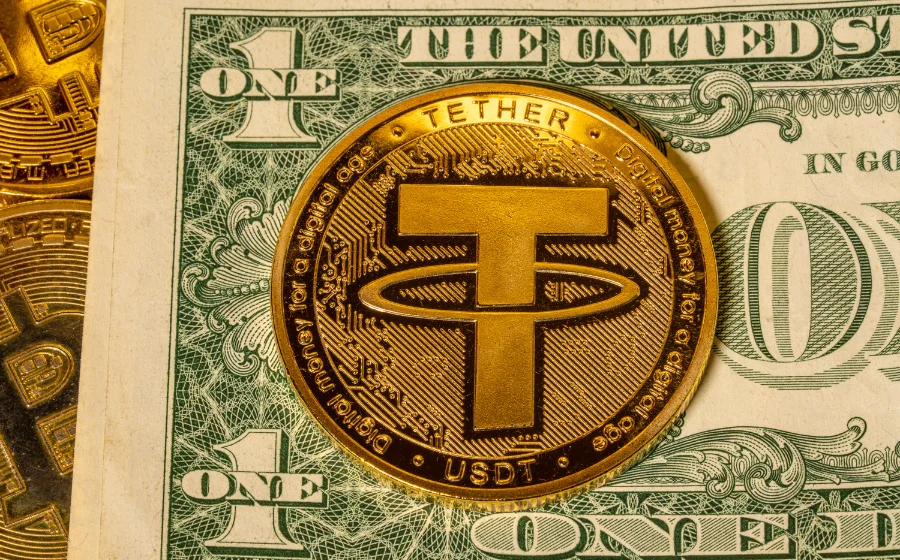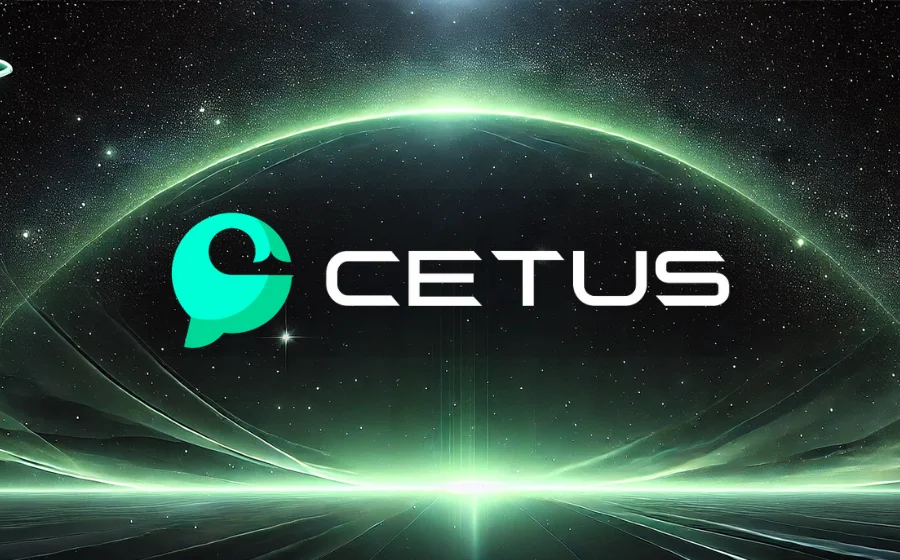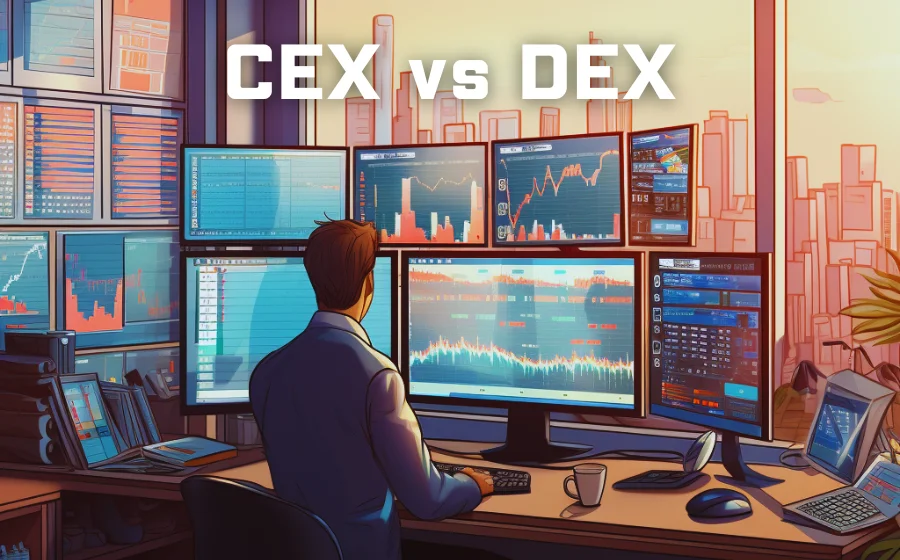
KEYTAKEAWAYS
- Centralized exchanges offer high liquidity, user-friendly interfaces, and advanced trading features, but require trust in the platform's security.
- Decentralized exchanges provide full control over assets and maintain user anonymity, but require careful management of private keys.
- Choose an exchange based on your trading needs, risk tolerance, and the level of control you want over your assets.

CONTENT
Cryptocurrency exchanges come in two types: centralized (CEX) and decentralized (DEX). Learn their differences, advantages, and how to pick the right one for your needs.
WHAT ARE CRYPTOCURRENCY EXCHANGES?
Cryptocurrency exchanges are platforms for trading cryptocurrencies, similar to “online brokers,” providing cryptocurrency trading and transactions (e.g., Bitcoin, Ethereum) online. Nowadays, the services of Cryptocurrency exchanges are not limited to trading functions. They also offer more derivative financial products or investment products, allowing users to perform more operations on the platform to earn profits.
Although Cryptocurrency exchanges are not regulated or controlled by any central bank or government agency, they can still be divided into the following two types:
- Centralized Exchange (CEX): An exchange controlled and regulated by a centralized institution.
- Decentralized Exchange (DEX): An exchange that is not controlled or regulated by any entity.
>>> More to read : TOP 5 Crypto Trading Platforms April 2024
WHAT IS A CEX (CENTRALIZED) CRYPTOCURRENCY EXCHANGE?
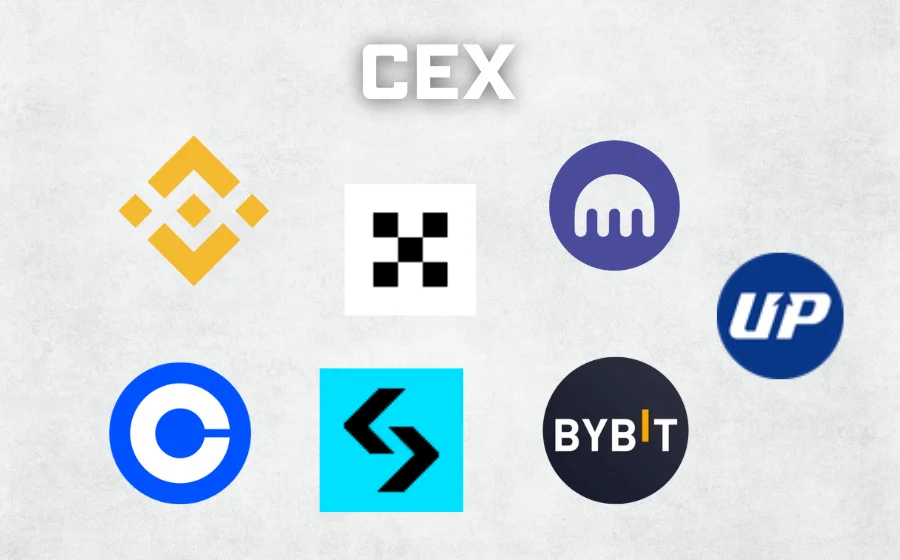
A CEX exchange refers to a centralized exchange, operated and managed by a single enterprise. Examples include well-known platforms like Binance, Coinbase, Kraken, Bybit, OKX, and Upbit. In recent years, at least hundreds of such exchanges have emerged globally. For users, using a centralized exchange (CEX) is very convenient.
In a CEX exchange, users need to register an account, store their digital assets in the platform’s wallet, and conduct transactions. These exchanges typically offer user-friendly interfaces, high liquidity, and numerous special trading features (such as copy trading and grid trading). Most people start their cryptocurrency investment journey with a CEX exchange, making them an irreplaceable part of the cryptocurrency market.
- Advantages of Centralized Exchanges:
- Sufficient Liquidity: CEX exchanges usually have high trading liquidity, meaning users can easily buy or sell cryptocurrencies at better prices.
- Convenient User Interface: CEX exchanges generally offer intuitive and beginner-friendly trading interfaces, allowing new users to quickly perform trading operations.
- More Advanced Trading Features: CEX exchanges typically provide more advanced trading features, such as trailing stop-loss, Fill or Kill, as well as unique trading features like copy trading and grid trading.
- Disadvantages of Centralized Exchanges:
- Security Risks: Since CEX exchanges store users’ assets in the platform’s wallet, users need to trust that the exchange has proper security measures to protect assets; otherwise, they may face the risk of attacks or theft. News of centralized exchanges being hacked appears from time to time.
- Contradiction to Blockchain Values: In CEX exchanges, users need to trust the exchange to handle and execute transactions as an intermediary, which may contradict the decentralized principles of cryptocurrencies.
- Regulatory Risks: Because CEX exchanges are centralized, they may be subject to regulation and legal requirements by government agencies, which could impose certain limitations on users’ privacy and freedom to trade.
Popular Centralized Cryptocurrency Exchanges:
WHAT IS A DEX (DECENTRALIZED) CRYPTOCURRENCY EXCHANGE?
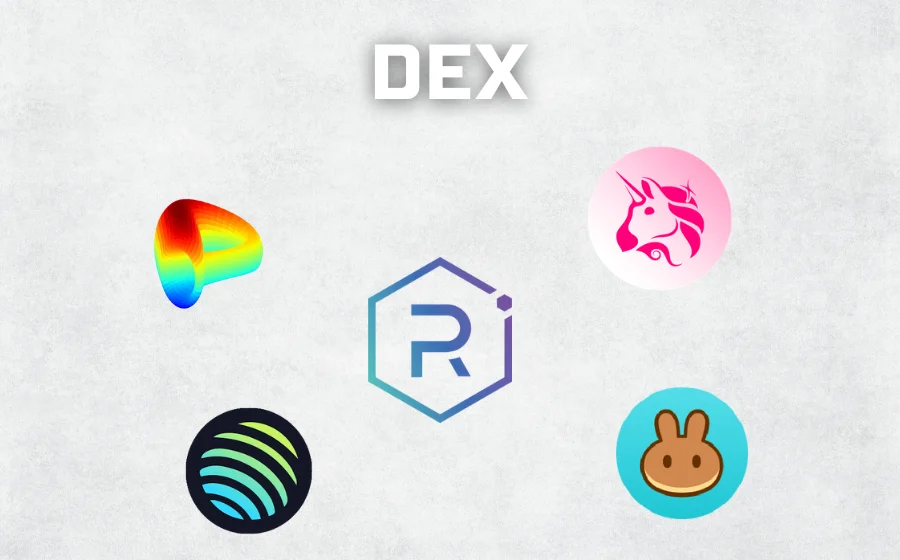
A DEX exchange refers to a decentralized exchange, with well-known platforms such as Uniswap, Jupiter, PancakeSwap, and Curve. These exchanges operate on the blockchain and are not controlled by a single entity or central authority. In a DEX exchange, transactions are completed directly on the blockchain, with users exchanging assets through smart contracts.
These exchanges emphasize decentralization, security, and user control over assets. Decentralized exchanges (DEX) operate without the need for a third party. Assets within the exchange are stored on the blockchain, allowing for peer-to-peer (P2P) trading without a company overseeing the decentralized blockchain-based trading platform. All transactions are conducted through smart contracts, maintaining user anonymity, and no KYC processes are required. DEX exchanges do not disclose users’ identities.
Each transaction and asset movement (whether tangible or intangible) is recorded, providing the most accurate and transparent data to all users, thereby enhancing trust. Decentralized exchanges offer a platform for peer-to-peer trading, where users’ funds and personal data are not managed by the platform. Instead, they only match buyers and sellers. Users do not need to go through identity verification or create accounts, as their private keys serve as their accounts. With a private key, users can start trading with anyone, and every step of the transaction process is transparent and public.
- Advantages of Decentralized Exchanges:
- Decentralization: DEX exchanges do not rely on a single entity or central authority. Transactions are executed directly on the blockchain using smart contracts, protecting users’ assets from the risks associated with centralized exchanges.
- User Control Over Assets: In a DEX exchange, users retain full control over their private keys and assets, eliminating the need to store assets in the exchange’s wallet. This reduces the risk of hacking or exchange failures.
- More Altcoin Options: Listing a new cryptocurrency on a centralized exchange (CEX) is often difficult, but it can be easily found on a DEX. Many users choose decentralized exchanges for this reason.
- Disadvantages of Decentralized Exchanges:
- Liquidity Constraints: Since transactions on DEX exchanges are conducted directly on the blockchain, transaction speed and liquidity may be limited, leading to higher price slippage and transaction costs.
- User Experience: Current DEX exchanges still have room for improvement in terms of user interface and trading experience. Compared to traditional centralized exchanges, they may be less user-friendly. Using decentralized exchanges requires a certain level of technical knowledge and familiarity with blockchain operations, which may be challenging for non-technical users.
- Personal Responsibility for Assets: On DEX exchanges, assets are tied to the wallet. This means that if a user loses or forgets their private key, the assets in the wallet will be permanently lost.
Popular Decentralized Exchanges:
HOW TO CHOOSE A CRYPTOCURRENCY EXCHANGE
Both centralized exchanges and decentralized exchanges have their advantages and disadvantages. Each person’s needs are different, so the suitable exchange will also vary.
- Centralized exchanges (CEX)
Centralized exchanges (CEX) offer user-friendly interfaces, high liquidity, and various advanced trading features. They usually require users to complete KYC verification to ensure the safety and legality of transactions. Additionally, these exchanges typically have compensation funds to reimburse users in case the exchange is attacked. However, the assets on centralized exchanges are controlled by the platform, so users need to trust the platform’s security measures.
- Decentralized exchanges (DEX)
Decentralized exchanges (DEX) omit the KYC steps, allowing users to have full control over their assets without going through the centralized exchange’s review. However, DEX recognizes wallets, not individuals, and lacks human verification steps. If users do not properly safeguard their private keys or if a transaction goes wrong, they must bear all the consequences themselves, with no place to appeal. Additionally, DEX is more susceptible to hacker attacks; any vulnerability in the smart contract could lead to significant losses. In contrast, CEX usually has better security measures and compensation mechanisms.
- Choosing the Right Exchange
- Understand Your Needs: Choose an exchange based on your trading needs and preferences. If you value anonymity and control over your assets, consider a decentralized exchange. If you prioritize convenience and security, opt for a centralized exchange.
- Familiarize Yourself with Operations: Before using a decentralized exchange, understand its operating model and trading methods, and familiarize yourself with the relevant operations.
- Assess Risk Tolerance: Choose an exchange based on your personal risk tolerance. Decentralized exchanges may carry higher risks but offer greater freedom. Centralized exchanges have relatively lower risks but require trust in the platform’s management and security measures.
- Security Measures: Ensure that the platform has comprehensive security measures and that you properly safeguard your private keys and assets, regardless of the type of exchange you choose.
In summary, selecting an exchange requires considering your personal needs and risk tolerance. Make an informed decision after thorough research and preparation to ensure the safety of your assets.
>>> More to read : What Is Crypto Trading? What Should Investors Know and Prepare in Advance?
FAQ
- What is a CEX exchange ?
A CEX exchange refers to a centralized exchange, operated and managed by a single enterprise.
- What is a DEX exchange ?
A DEX exchange refers to a decentralized exchange, which operates on the blockchain and is not controlled by a single entity or central authority.
▶ Buy Crypto at Bitget
ꚰ CoinRank x Bitget – Sign up & Trade to get $20!



